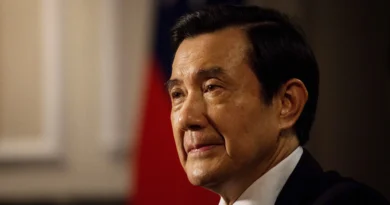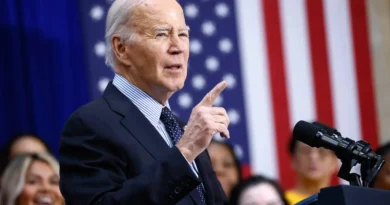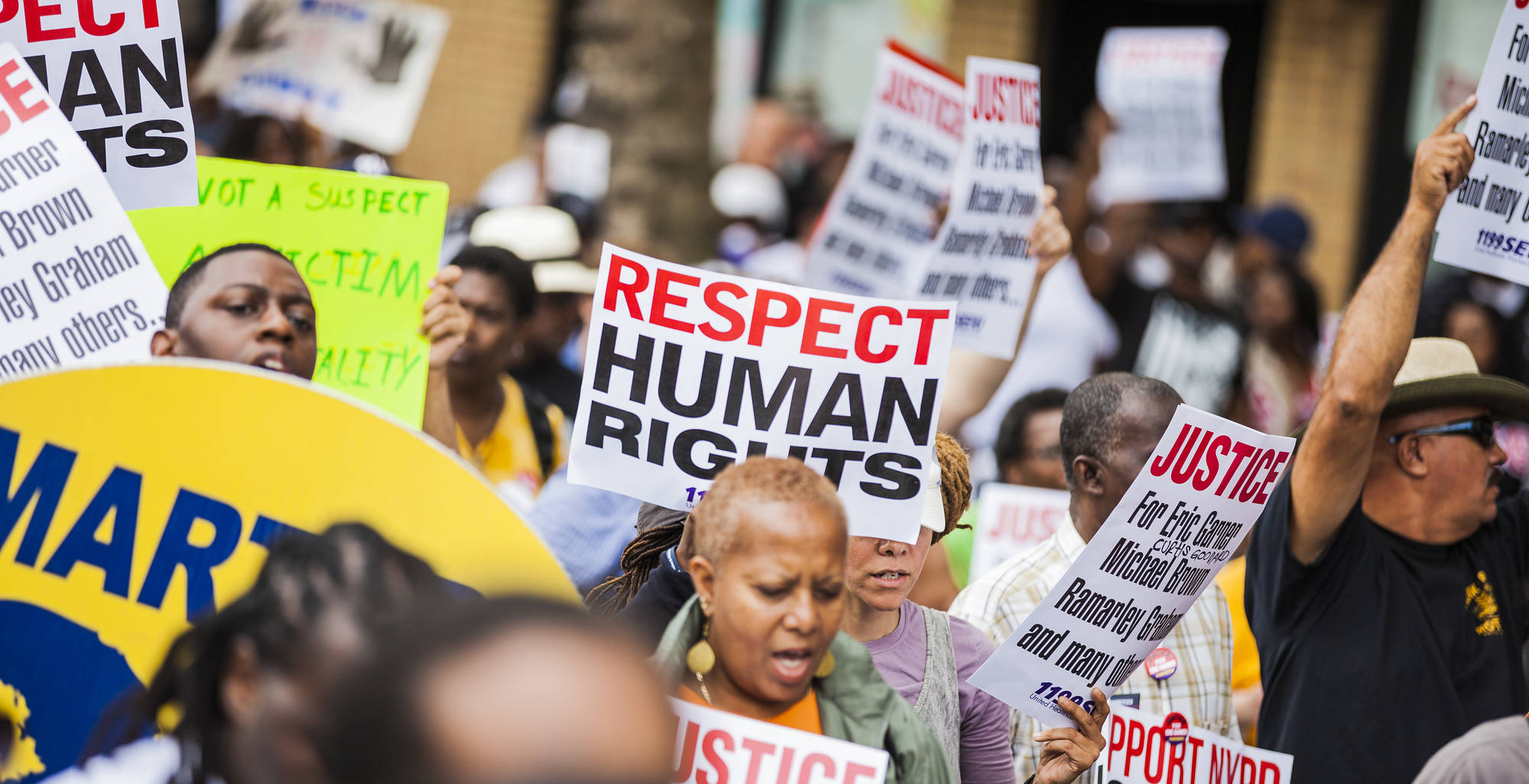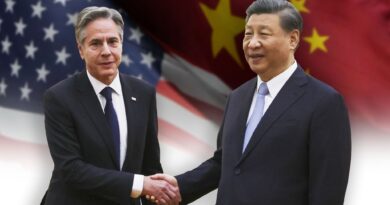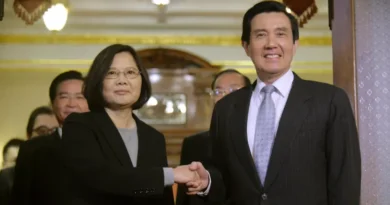Milei goes for everything and against everyone
CECILIA VALDEZ
In these almost 4 months of government, Javier Milei, the president of Argentina, attacked everything. He won the elections with a disruptive, outsider style, which he has managed to maintain, even at the expense of his own government plans.
The confrontation with the governors, with members of the “dialogue opposition” (everything that is not Peronism/Kirchnerism), and with legislators from almost all the forces that are not included in the Republican Proposal (the party of former president Mauricio Macri), his great ally, earned him the fall of his main projects, with which he intends a complete reform of the State and the economy: the Decree of Necessity and Urgency (DNU), which still must be revalidated in the Chamber of Deputies, and the law Bus.
Although his particular style helped Milei win the elections in a context of total discredit of the political class, and in the midst of one of the worst economic crises on record, many doubt his lack of political waist to negotiate and make concessions, and in their confrontational ways. However, and despite everything, the government insists that neither the coups nor the defeats at the hands of the opposition will force them to change their course.
Although during his campaign Milei announced an adjustment in the economy, he also made it clear that this adjustment would be paid for by the caste, that is, the privileged sectors. But throughout these months, the caste was mutating in its composition, and took the form of Congress, the State or a large part of the population, that is, the different actors at which it has been pointing (and firing) all its cannons. .
Economy
On the other hand, the adjustment that allows the government of La Libertad Avanza (LLA) to showcase its greatest achievements: fiscal surplus and slowdown in inflation (25,5% in December, 20,6% in January and 13,2% in February), also represents one of its greatest threats, given that these “achievements”, which serve to organize the macro economy, also imply an accelerated impoverishment of the middle and lower classes, which were already heavily hit by the previous government.
That is to say, the surplus hides an adjustment that has slowed down consumption, destroyed salaries, increased rates, punished one of the most vulnerable sectors of society: retirees, and fueled a time bomb in a country where more than half of the population is poor (57%).
According to the National Institute of Statistics and Censuses, the average income of formal employees is already below the poverty line. Retirees, for their part, represent the government's main adjustment variable - 35% of the total adjustment in February - and sales in pharmacies fell 46%. In this sense, testimonies proliferate indicating that a large part of retirees must choose to buy some of the medications they need, because their assets are not enough to finance all their expenses. Likewise, cancer, chronic and autoimmune disease patients denounced that the government also cut essential benefits and treatments.
In this context, and despite the fact that Milei asks the population to make a strong sacrifice for the sake of future improvements in the economy, many of those who supported him (and support him) are beginning to question the deadlines. The president promised that in about two years the accounts could be cleaned up and the results could be reflected, but a good part of the population no longer has room to continue adjusting (and holding on), and is beginning to get impatient.
The increases in fuel, prepaid (medical insurance), medications, food, transportation, school supplies, and a long etcetera, have been having a brutal impact on citizens' pockets. And if we add to this the constant dismissals of state workers, the suspension of workers in factories, the leaving community kitchens without food, the closure and/or defunding of organizations such as INADI (National Institute against Discrimination and Racism), Télam (the state news agency), or the INCAA (National Institute of Cinema and Audiovisual Arts), not only is an adjustment in public accounts inferred, which is justified on the basis that the State functioned as a “storage house”. ” of Kirchnerists/Peronists, but the objective is the State itself.
A few days ago, Milei announced 70 layoffs of state workers, and boasted of having laid off 50 since the beginning of his administration. At the beginning of an extra long weekend (6 days), the government announced the termination of 15 thousand contracts and many workers from different public agencies began to receive dismissal telegrams. These are, for the most part, contracts that expired in December, but that were extended - to be audited - for 3 months on December 31.
The presidential spokesperson, Manuel Adorni, indicated that the rest of the contracts will be extended for 6 more months while they continue to be analyzed. Hundreds of state workers, many with contracts of more than 20 years, that is, who have a historically precarious situation as state employees, have been living for months with the daily threat of losing their jobs.
The opposition
Defining the opposition to the government of Javier Milei is not an easy task because, if there is something that characterizes the government of La Libertad Avanza, it is that, in these 4 months of government, it has garnered enmities everywhere. Although the government began its mandate facing its main opponent at the polls: Peronism, and the leftist forces, which opposed a far-right government from the outset, soon that spectrum expanded to include a good part of those who were initially considered possible allies.
Milei's honeymoon with the political forces that were called the “dialogue opposition,” due to their willingness to dialogue, was short-lived. The speed with which Milei applied adjustment measures that, for other governments, generally take years, caused a strong confrontation with the governors who opposed the cut of funds to the provinces, and this ended up sealing the fate of his two star policies: the Omnibus law and the Decree of Necessity and Urgency (DNU). For the latter, after having been rejected in the Senate, a second assault awaits in the Deputies where it will be finalized whether it is ratified or rejected, but in the meantime it will remain in force.
Be that as it may, in order to carry out its economic plan, the government made the decision to defund the provinces and that led to a strong confrontation with almost all the governors, and the provincial legislators who respond to them voted against their projects. in Congress. From that moment on, Milei defined them as enemies and, although he later made an attempt at rapprochement by calling for dialogue through the so-called May Pact, the rejection of the DNU in the Senate only further strained the relationship.
On the side of the omnibus Law: “Bases and Starting Points for the Freedom of Argentines”, whose original text consisted of more than 600 articles that proposed a total reform of the State, and which the government decided to withdraw from parliamentary discussion due to due to the rejection of many of its articles in the Chamber of Deputies, it will now be discussed again, but in a much smaller version. Even so, and while some officials of the ruling party negotiate against the clock with the governors, with the aim of securing the votes they need to avoid adding another defeat, Milei does not stop adding more fuel to the fire and continues to publicly criticize the provincial leaders. .
One of the main obstacles that the LLA government faces is the small number of legislators it has in both chambers (8 deputies out of 257 and 7 senators out of 72), which forces it to negotiate almost everything. Despite this, Milei's decision seems to go in the opposite direction, since, outside of his unconditional ally, Republican Proposal (PRO), he has practically not known / wanted / been able to establish alliances. Although both We Make the Federal Coalition (a group of different forces that are located in the center), as well as the historic Radical Civic Union (UCR) and other provincial forces, repeatedly expressed their intentions to support the government measures, Milei has not done more to seek confrontation.
Those who also do not seem to find a direction are the Peronists, whose internal affairs only deepen. While its main references (Cristina Fernández de Kirchner, Máximo Kirchner, Sergio Massa, etc.) remain in the shadows, Axel Kicillof, at the head of the governorship of the province of Buenos Aires (which concentrates 37% of the electoral roll), makes juggling to maintain his government policy. The Peronist is forced to negotiate with the national government, but also to maintain himself, and show himself, as a counterpoint that allows him to establish himself as an alternative, and main opposition, in the face of the next elections.
Polarization (and cruelty) advances, with Milei at the helm
The result of last November's elections in Argentina, which won the presidency for Javier Milei, and his party, La Libertad Avanza, with 56% of the votes, also left a scenario of deep polarization that has only deepened. . Society is divided today between those who maintain the need to endure the government's economic adjustment, for the sake of a promising future, and those who are categorically opposed to the decisions made by the far-right in these almost 4 months of government. The novelty is that a group is also beginning to grow that, although I vote for it, does not see it as viable (even if they want to) endure the enormous sacrifice that Milei demands. In fact, a good part of the population admits to having had to make cuts in their current expenses, but, although some justify it by pointing out that before (especially during Kirchnerism), they spent more than they had, others view it with horror. the accelerated and sudden deterioration of their income.
Milei insisted during the campaign that everything that could be privatized would be privatized, but his anti-statist crusade also includes unusual rejoicing every time workers are fired, or the closure of emblematic organizations such as the INCAA is threatened. What happened with the INCAA is quite paradigmatic of the situation that exists in Argentina, and caused the repudiation of a wide range of voices that do not usually express themselves politically, since it is an institution that is autarkic, or what is the same, it self-financed, and has wide international recognition.
But Milei's thing with social networks deserves a separate chapter. The president has not only admitted to being the one who manages his social networks, but he does so in an openly violent and confrontational tone. Without going any further, during his confrontation with the governors, Milei published an edited image showing the governor of Chubut, Ignacio Torres, surrounded by journalists and with the legend “they are fucking the governor of Chubut, Torres.” She also “liked” an image of Torres that compared him to a young man with Down syndrome.
The other thing that stands out is the enormous amount of time that Milei dedicates to social networks, mainly to X (ex Twitter). In relation to this, a programmer created a website (https://milei.nulo.in/) that records, minute by minute, the time that the libertarian spends interacting on networks. Through X, and the official account “Office of the President”, many of the government decisions have been communicated. Additionally, Milei uses his personal account to attack all kinds of public figures, and an army of trolls often backs up his attacks.
Impact
Despite everything, polls are already beginning to show a decline in support for the government and Milei. The latest report carried out by the pollster Zuban Córdoba, regarding the 100 days of government, concludes that 7 out of 10 Argentines have seen their situation worsen since LLA arrived at the Casa Rosada, 57,3% have a negative image of Milei (Cristina Kirchner's is 62,9%), and 88% believe that the adjustment is not paid by the caste, but that "we are all paying for it."
Another storm front that the far-right had to endure in recent days is the worsening of the internal conflict with its vice president, Victoria Villarruel. The relationship between the president and his vice president was never good, but the government's management increased the differences. A few weeks ago, when Villarruel, who also plays the role of head of the Senate, authorized the treatment of the DNU in the Chamber of Senators - which caused its rejection - and was against the president's decision to reverse the increase of salaries for legislators and senior executive officials, Milei attacked her openly and, what had been an open secret, was no longer one. For the rest, and although this week they took a photo hugging each other wanting to lower the price of the situation, on Thursday night, Villarruel gave his first interview since taking office and distanced himself from Milei on several issues on the public agenda. .
Villarruel, with a long political career, saw how, a few days after taking office, the promise that the areas of Defense and Security would remain under his orbit, fell apart when the president decided to appoint Patricia Bullrich to the Ministry of Security (Proposal Republican) and in Defense, to Luis Petri (Unión Cívica Radical). From there, the rumors of his meetings with former president Mauricio Macri did not stop growing. The vice president is also known for her militancy in groups that are called complete memory, and that openly claim state terrorism and its perpetrators.
Mark agenda
If there is something that Milei has known how to do in these almost 4 months of government, it is to set the agenda. Whether due to his particular style, his provocative presence on the networks, the brutal adjustment with which he carries out his government plan, his international alliances - particularly with the US and Israel -, the fractures of the opposition - which prevent him from making a speech unified -, or his constant fights with other legislators, with provincial governors, with very high-profile artists, and even with the Pope, Milei has managed to be the center of all eyes. Despite everything, in political terms, the only thing that is clear, for now, is that in Argentine history no government has dared to do so much in such a short time.
Almost as if he had not left behind the candidate's suit, and had put on that of first president, the president also surprises by leaving almost no room for agreement, and makes many wonder how long he will be able to sustain this situation. For now, it can be inferred that last December 10, when he decided to give his investiture speech with his back to Congress, that represented a declaration of principles and almost a declaration of war towards the majority of its members.
However, the great unknown is whether Argentine society will be able to find any coordinated response to such an onslaught. For now, what we see are groping and scattered reactions, but they respond to a memory and historical baggage of struggle, resistance and popular organization, which represent perhaps the greatest capital that Argentine society can draw on.






